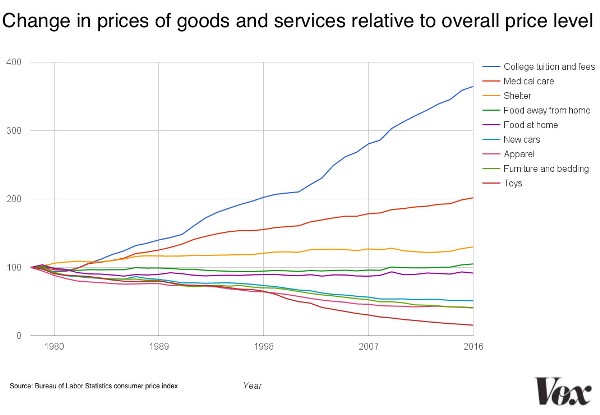In a very interesting series, Alex Tabarrok explores the ‘Baumol effect‘ – the rise of salaries in jobs that have experienced no or low increase of labor productivity, in response to rising salaries in other jobs that have experienced higher labor productivity growth. Read for example ‘Why Are the Prices So D*MN High?‘ or ‘The Baumol Effect‘.

This effect explains in particular the relative rise in the cost of education and health care, and may also explain the relative rise of the cost of housing among other factors. Sectors with the most productivity increase will drive an increase in the cost of sectors will little increase of productivity. Alex Tabarrok’s post ‘The Baumol Effect‘ gives a deep insight and excellent examples of the reasons behind this effect.
Thus as we enter a new age where the relative cost of certain services will decrease substantially, we will observe the value of other services to increase relatively, changing substantially the balance of our personal budgets. It has already occurred during the industrial revolution: the relative cost of foodstuff and the share in our budgets has decreased substantially. It will now happen similarly for other aspects. Just because we can’t quite improve the productivity of certain activities.
